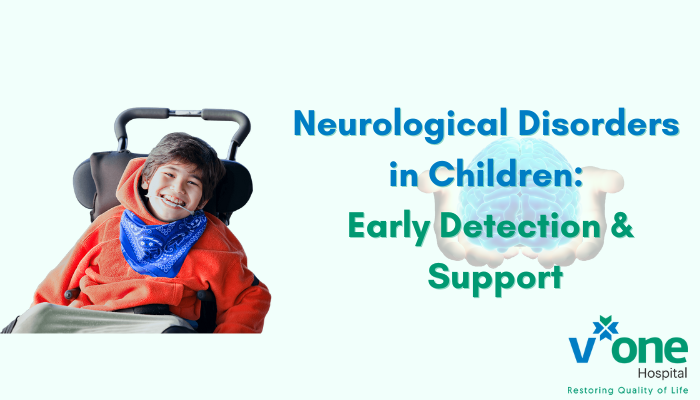Neurological Disorders in Children: Early Detection & Support
In the world of parenting, nothing is more precious than the well-being of our children. Yet, when faced with the complexities of neurological disorders, many parents find themselves overwhelmed and in need of guidance. In this comprehensive guide, we’ll navigate the realm of neurological disorders in children, shedding light on the importance of early detection and the supportive measures available.
We will also explore the vital role played by the best neurologist in Indore, offering expert care and compassionate support tailored to the specific needs of each child. Together, let’s explore these challenges with empathy, understanding, and a commitment to a brighter future for every child.
Understanding Neurological Disorders in Children
Neurological disorders in children encompass a wide range of conditions that affect the brain, spinal cord, and nerves. From Autism Spectrum Disorder (ASD) to Attention Deficit Hyperactivity Disorder (ADHD) and Epilepsy, these disorders can vary greatly in their symptoms and impact on a child’s life.
The Significance of Early Detection
Early detection is akin to opening a door to a world of possibilities for a child with a neurological disorder. It allows for timely intervention and support tailored to the specific needs of the child. Simple observations like developmental milestones, social interactions, and speech patterns can provide valuable clues for early detection.
Common Neurological Disorders
1. Autism Spectrum Disorder (ASD)
ASD affects a child’s social skills, communication, and behavior. Early signs often include a lack of eye contact, delayed speech, and difficulty in social interactions. Early therapy and behavioral interventions can significantly improve the quality of life for children with ASD.
2. Attention Deficit Hyperactivity Disorder (ADHD)
ADHD manifests as inattention, hyperactivity, and impulsivity. Children with ADHD may struggle in school and have difficulty in forming relationships. With early diagnosis, a combination of therapy, behavioral interventions, and, in some cases, medication, can help manage symptoms effectively.
3. Epilepsy
Epilepsy is characterized by recurrent seizures, which can vary from mild to severe. Early diagnosis is critical to start appropriate medication that can often control or reduce the frequency and intensity of seizures, allowing children to lead more normal lives.
Compassionate Support and Interventions
Special Education and Therapies
Enrolling children in specialized educational programs designed for their needs can make a significant difference. Speech therapy, occupational therapy, and physical therapy are invaluable tools in enhancing a child’s development and independence.
Behavioral Therapy
Behavioral therapy provides children with coping mechanisms and social skills, empowering them to navigate the challenges of everyday life. This form of therapy focuses on reinforcing positive behaviors and teaching effective strategies for managing difficulties.
Parental Support Groups
Parents often find solace and valuable insights in support groups where they can share experiences, learn from others, and find emotional support. These groups create a sense of community and understanding, reducing the feeling of isolation that can come with caring for a child with a neurological disorder.
The Role of a Pediatric Neurologist
Pediatric neurologists are highly specialized professionals equipped to diagnose and manage neurological disorders in children. The best neurologist in Indore combines extensive medical expertise with a deep understanding of child development, ensuring a holistic approach to diagnosis and treatment.
Beyond their medical expertise, the best neurologists also offer compassionate support. They understand the emotional challenges families face and provide guidance, answering questions, and offering reassurance. Their approach is not just clinical but empathetic, ensuring both the child and their family feel supported throughout the journey.
Embracing a Positive Future
It’s important to understand that a neurological disorder does not define a child’s potential. With early detection, personalized support, and unwavering love, children can overcome many challenges and lead fulfilling lives. Every achievement, no matter how small, is a testament to their resilience and the dedication of their support network.
Conclusion
In the journey of parenting a child with a neurological disorder, knowledge is not just power; it’s also the key to hope. By staying informed, seeking early detection, and embracing the available support, we pave the way for a future where every child can thrive, regardless of their neurological differences. Let’s stand together, advocate for awareness, and create a world where every child is given the opportunity to shine.

